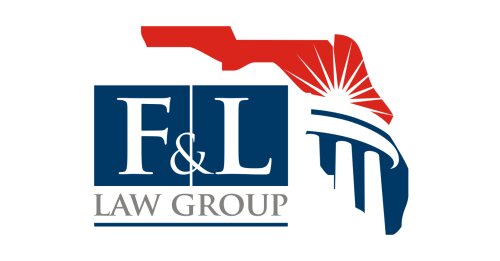Best Creditor Lawyers in Florida
Share your needs with us, get contacted by law firms.
Free. Takes 2 min.
Or refine your search by selecting a city:
List of the best lawyers in Florida, United States
About Creditor Law in Florida, United States
Creditor law in Florida involves the rights and obligations of parties that extend credit and those who owe debts. Creditors are individuals or entities that are owed a financial obligation by another party, called the debtor. This area of law encompasses debt collection, enforcing judgments, bankruptcy filings, foreclosure actions, and protection of creditor rights under both state and federal law. Florida has specific statutes and regulations designed to balance the interests of creditors seeking repayment and the legal protections afforded to debtors.
Why You May Need a Lawyer
There are numerous situations where seeking legal advice or representation can be helpful for creditors in Florida. These include:
- Difficulty collecting unpaid debts from individuals or businesses
- Enforcing judgments against debtors who refuse to pay
- Responding to debtor bankruptcy filings and protecting creditor interests in bankruptcy courts
- Navigating Florida's complex foreclosure processes
- Ensuring compliance with federal and state debt collection laws to avoid liability
- Negotiating settlements or payment plans with debtors
- Recovering property or assets through replevin or other court actions
Legal professionals can help protect your rights, maximize the chance of recovery, and guide you through the legal and procedural requirements unique to Florida.
Local Laws Overview
Florida creditor law is governed by several state statutes and incorporates federal regulations. Some of the key aspects include:
- Florida Consumer Collection Practices Act (FCCPA): This law works alongside the federal Fair Debt Collection Practices Act (FDCPA) to prohibit abusive, deceptive, or unfair debt collection practices. Creditors and collectors must adhere to strict guidelines when attempting to collect debts from Florida residents.
- Statute of Limitations: In Florida, creditors have a limited timeframe to pursue debt collection through the courts. For example, most written contracts have a five-year limitation period, while oral contracts and open accounts generally have a four-year limit.
- Judgment Enforcement: Once a court awards a judgment to a creditor, Florida law provides several tools for collecting, such as wage garnishment, bank account levies, and property liens. However, Florida exempts certain assets from garnishment, including the primary residence (homestead exemption).
- Foreclosures: Florida follows judicial foreclosure processes, meaning creditors must go through the courts to foreclose on real property. Stringent timelines and notice requirements must be observed.
- Bankruptcy Protections: Federal bankruptcy laws override state collection efforts in many scenarios, but creditors have specific rights to file claims and attend bankruptcy hearings to protect their interests.
Staying compliant with Florida and federal collection laws is crucial for creditors seeking to collect debts while avoiding legal pitfalls.
Frequently Asked Questions
What is the statute of limitations for collecting a debt in Florida?
Generally, written contracts in Florida have a five-year statute of limitations, while oral agreements and open accounts such as credit cards have a four-year limit.
How can I legally collect a debt in Florida?
Creditors must adhere to the FCCPA and FDCPA, ensuring all collection efforts are lawful, non-harassing, and do not use deceptive practices. Legal action may be required if voluntary payment is not forthcoming.
What assets are protected from creditors in Florida?
Florida law protects certain assets, such as homestead property, retirement accounts, and some wages, from most creditor claims or garnishments.
Can a creditor garnish wages in Florida?
Yes, but only under specific circumstances. Florida law imposes restrictions, and the process requires a court order. Some wages, especially for head-of-household earners, are protected.
What happens if a debtor files for bankruptcy?
Most creditor collection activities are automatically halted. Creditors must file claims in bankruptcy court and may be entitled to a share of any distribution, depending on the type of bankruptcy filed.
Do creditors need a court judgment to collect a debt?
Voluntary repayment can occur without a judgment, but to enforce collection through garnishment, liens, or seizure, a creditor must first obtain a court judgment.
Are there penalties for violating Florida's debt collection laws?
Yes. Creditors or debt collectors who violate the FCCPA or FDCPA can be sued by debtors and may face fines, legal fees, and other penalties.
How are foreclosure actions handled in Florida?
Florida requires judicial foreclosure, which means a creditor must file a lawsuit and obtain a court order to foreclose on a property. The borrower is entitled to notice and an opportunity to respond.
Can a creditor seize a bank account in Florida?
Yes, with a valid court judgment, creditors can seek to levy a debtor's bank account. There are exemptions, and certain types of accounts may be protected.
What should I do if a debtor disputes the debt?
Proper documentation and following legal procedures are essential. The creditor must provide verification and cannot continue collection efforts until the dispute is resolved.
Additional Resources
Several organizations and governmental agencies provide guidance and support related to creditor issues in Florida:
- Florida Office of Financial Regulation
- Florida Bar Association - Consumer Law Section
- United States Bankruptcy Court, Southern, Middle, and Northern Districts of Florida
- Florida Department of Agriculture and Consumer Services
- Federal Trade Commission (FTC) - Debt Collection Guidance
- Legal Aid Societies throughout various Florida counties
Next Steps
If you are a creditor seeking legal assistance in Florida, consider the following approach:
- Gather all documentation and records related to the debt
- Review your interactions with the debtor and ensure you are compliant with all relevant laws
- Determine if the statute of limitations has expired on the debt
- Contact a specialized attorney with experience in Florida creditor law for a case evaluation
- Act promptly to preserve your rights and maximize your chances of recovery
Navigating creditor issues in Florida can be complex, but with proper legal guidance and a clear understanding of your rights and obligations, you can make informed decisions and improve your likelihood of a successful outcome.
Lawzana helps you find the best lawyers and law firms in Florida through a curated and pre-screened list of qualified legal professionals. Our platform offers rankings and detailed profiles of attorneys and law firms, allowing you to compare based on practice areas, including Creditor, experience, and client feedback.
Each profile includes a description of the firm's areas of practice, client reviews, team members and partners, year of establishment, spoken languages, office locations, contact information, social media presence, and any published articles or resources. Most firms on our platform speak English and are experienced in both local and international legal matters.
Get a quote from top-rated law firms in Florida, United States — quickly, securely, and without unnecessary hassle.
Disclaimer:
The information provided on this page is for general informational purposes only and does not constitute legal advice. While we strive to ensure the accuracy and relevance of the content, legal information may change over time, and interpretations of the law can vary. You should always consult with a qualified legal professional for advice specific to your situation.
We disclaim all liability for actions taken or not taken based on the content of this page. If you believe any information is incorrect or outdated, please contact us, and we will review and update it where appropriate.
Browse creditor law firms by city in Florida
Refine your search by selecting a city.











